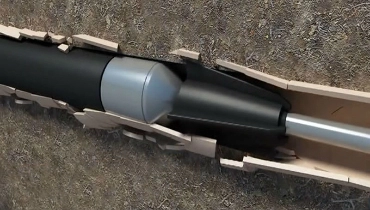
One of the worst things to happen to your home is having to deal with a busted pipe. It disrupts your day-to-day life, it's inconvenient, and it's costly. Not to mention all that digging isn't going to be good for the environment.
There are a few things you can do to keep your pipes from bursting prematurely in Phoenix. The first thing you should do is always check the status of your plumbing system. This should be put on the priority list as the heat and temperatures rise.
When the cold weather comes, the risk of the pipes being damaged increases. This is because the freezing weather can turn your pipes as hard as a rock. When water expands due to cold, the pressure on the pipe increase. Where do they go but out? Then the pipes burst apart at the weak joints or in the cracks. Frozen pipes can cause great damage to any property. It can be a pain and expensive to repair.
It's important to know what you can do to prevent your pipes from bursting. Here are six essential tips to live by:
1. Provide Protection
Your outdoor pipes, spigots, and faucets should be covered with insulating domes. It's easy to install- just put them over the fixture when the cold season comes to keep the frost and ice out. It's important to seal them up as the ice can seep up open spots within your water system. Inspect the level of insulation and see if they are adequate for your cold water tank and pipes. Places to look are attics, basements, and any other vulnerable space.
2. Change the Air Flow
The cold weather typically affects the pipes located outside your home. To prevent your outdoor pipes from freezing, you can manipulate the flow of air entering inside the pipes. Simply direct warm air toward the areas where your outside pipes are.
3. Lock in the Leak
Check your pipes, dryer vents, and electrical wiring for any telltale leaks. Lock the leak and seal it in with caulk or other insulation material. Put in some heat tape to prevent the flow of cold air from entering your home. Even a small breath of constant cold air can cause great damage to your property in the long run.
4. Let the Water Flow
Release the withheld pressure from your water system by turning on the tap. Allow a slow drip of water during cold weather to keep it flowing. This prevents the water from building up, which in turn lessens the likelihood of your pipes rupturing.
5. Crank the Heat Up
Turn up the heat to prevent your pipes from freezing over. If you can, don't allow the temperature to fall under 32 degrees F or the freezing point of water. Apply or turn on the heat in the affected pipe areas, or where the water lines are located. Keep the heat circulating around your home during the colder months.
6. Open Your Cabinets
Keep your toiletries and cleaning products from overflowing in the cabinet underneath the sink. When you store heavy items or pile them up too high, they may knock the pipes above loose and warp the pipes. This leads to a shorter pipe life and a host of other pipe-related problems. When the cold months come, open up the cabinets to allow warm air in.

